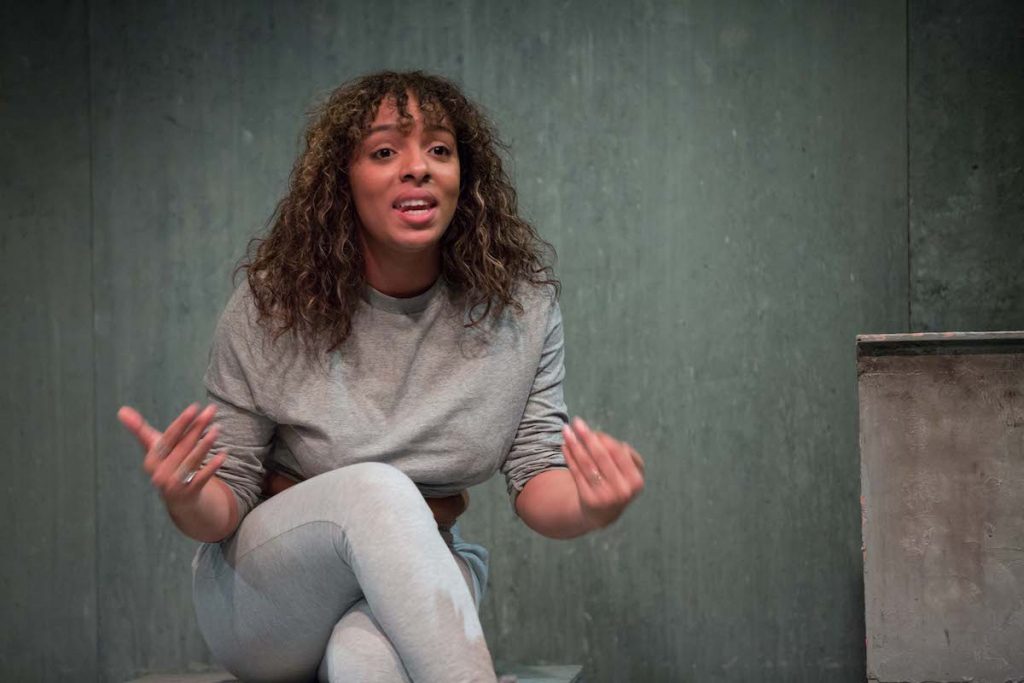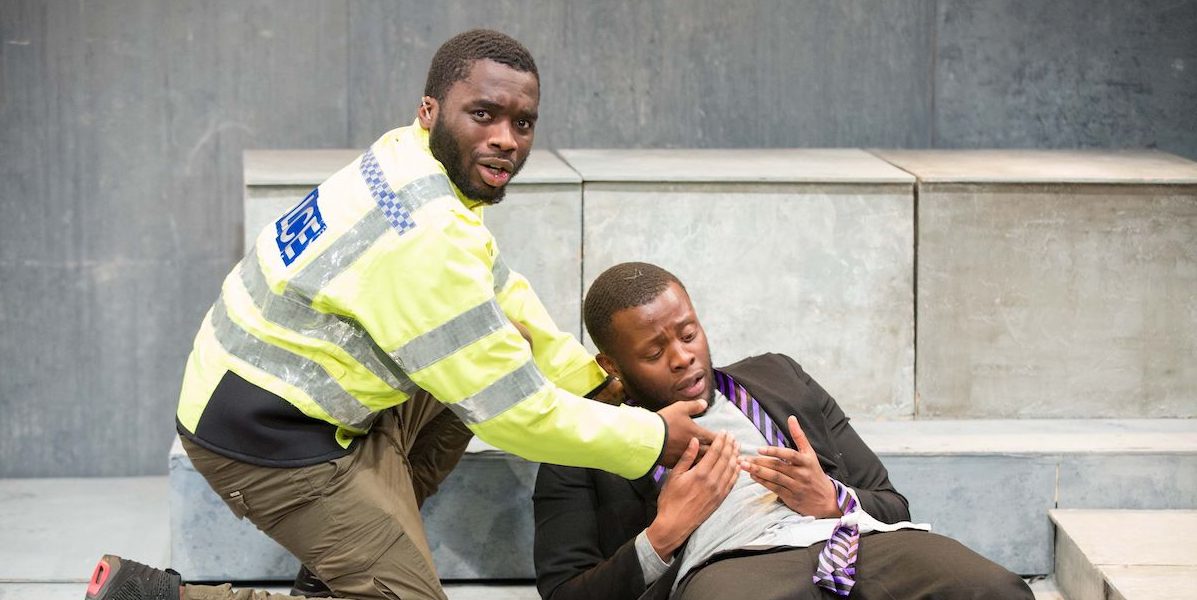Since 2008 Intermission Youth Theatre (IYT) has built an outstanding reputation for developing the acting talents and skills of young people traditionally excluded from or unacquainted with theatre. Their latest venture, led by director, writer and actor, Darren Raymond, takes over the newly refurbished Chelsea Theatre for an adaptation of Shakespeare’s ‘Romeo and Juliet’ in which new urban dialogue is artfully blended with Shakespeare’s text and roles are in large measure gender reversed. There are two casts which share the performances and this review comments on the ‘Juliet’ cast.
I approached this performance with some wariness. Performances of ‘Romeo and Juliet’ are very common at present, seen as a safe bet with audiences after lockdown. What new insights or opportunities could this production offer? I was surprised and delighted by what I witnessed, which was quite the most uplifting evening I have experienced in a theatre since reopening. Yes, it was a wonderful illustration of diversity in action, but more tellingly, it was just very good drama, with high-level performances across the board, a tightly wrought text, exciting movement and gesture, and a carefully thought through minimalist set. All in all, a wonderful demonstration of the power and intensity that is released when this play is performed by actors the age of the characters they are intended to portray, and of the all-embracing outreach of Shakespeare’s themes.
The setting is modern London with the Montagues and Capulets transmuted into a conflict between South and East. Mercutio and Tybalt (Tibs!) are still there. Friar Laurence now presides over a tattoo parlour rather than a chapel. Tibz and Capo, Romeo’s tough elder sister, appear to be running a local drugs operation, and the masked ball becomes a Covid-era night club. The urban dialogue is natural and sassy, and Shakespeare’s influence is constantly there through a chorus which comments on the action using original material from the play. The effect of reassigning the lines of Juliet and Romeo is intriguing and not a shallow gimmick – the result gives the lead actors original opportunities to find fresh areas of both vulnerability and assertiveness across gender lines.
As a result, Ophelia J Wisdom’s Juliet is much more in charge of her own choices than usual and Chadrack Mbuini finds an unusual level of introspection and shyness in Romeo. Their combination against convention of female feistiness and male awkwardness makes you rethink the emotional matrix of the play as any original interpretation should. Some things don’t change though, and as usual it is the actors playing Tybalt and Mercutio who have the most virtuoso fun. Elijah Maximus summons up real menace and street presence as Tibs, the centre of attention whenever he is on stage; and Niara Rowe, playing Mercutio gender-reversed, generates sly fun and rebarbative wit as Juliet’s friend and sparring partner. There are also very rewarding performances from Ashleigh Smith as Benny (Benvolio) and Megan Samuel, who finds emotional range and depth in the apparently unsympathetic part of Capo, replacing Juliet’s father in the original.
At the end of the performance is a Talkback session in which the audience can ask questions about the devising process and talk to the cast about what they have gained from and contributed to the production. On press night this was a fascinating and searching discussion covering many sensitive topics with eloquence, insight, and humour. Rarely are such sessions integral to the experience as this was.
This production runs until December 4th and should be a priority for anyone who loves theatre and its power to transform and enhance the lives of both performers and audiences. It is also testimony, just as ‘West Side Story’ was in its day, to the infinite malleability of this play and the universal genius of its creator.

